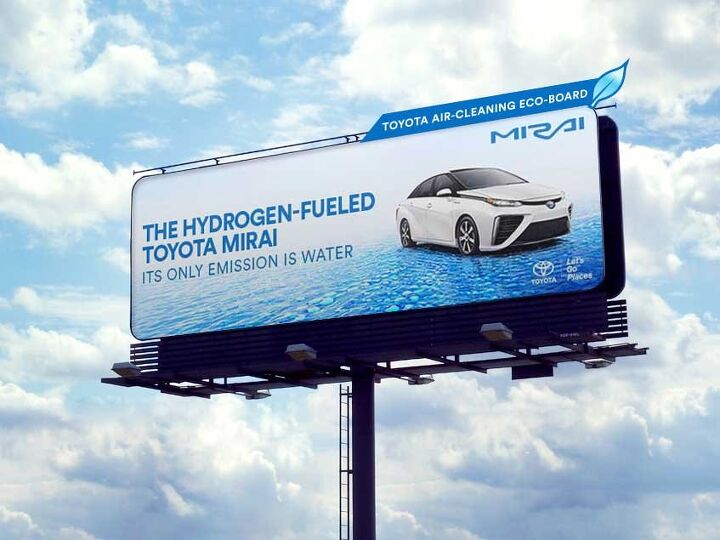Hydrogen Fuel Station Blast Temporarily Halts Fuel Cell Vehicle Sales in Norway

Toyota and Hyundai have reportedly suspended sales of the hydrogen fuel cell-powered Mirai and Nexo in Norway after one refueling station went up like the Hindenburg.
Local media reports that, on Monday evening, a Uno-X station in Sandvika suffered a “huge explosion” that injured two nearby drivers after the shock wave caused their vehicles’ airbags to deploy. It’s a black eye for a fuel that, despite the best efforts of a handful of determined automakers, can’t seem to make much headway in the marketplace.
Following the blast, station operator Nel shut down a number of its remaining refueling locations in Norway, reports NRK, as well as those in other European countries. An investigation is ongoing.
The lack of hydrogen availability in Norway means there’s little reason to sell vehicles that can’t find fuel. In response, Toyota and Hyundai have temporarily suspended sales of their FCVs.
Hydrogen is difficult and energy-intensive to produce; in California, the only U.S. state to offer drivers the option of taking home a FCV, efforts are underway to expand the existing network of 40 retail refueling stations. Another 24 are in various stages of planning and approval.
FCVs operate by generating electricity through a chemical reaction in the fuel cell stack. That current then powers a conventional electric motor, which powers the drive wheels of the car. Operation is much like any other EV, though refueling is a much quicker process than plugging in your vehicle overnight. Of course, that’s assuming the nearby station hasn’t run dry of its supply of scarce liquified hydrogen. Range, while improved from early models, still lags behind that of internal combustion vehicles.
News of a station detonating will no doubt rekindle distrust in the highly flammable gas, which, as this story’s lede aptly shows, can’t seem to shake the stigma of that 1937 tragedy at Lakehurst Naval Air Station. And still automakers try. Among other makes, Hyundai, Toyota, Honda, and Mercedes-Benz feel that the future of propulsion is not yet set in stone; thus, FCV development continues.
[Image: Toyota, Matthew Guy/TTAC]

More by Steph Willems
Latest Car Reviews
Read moreLatest Product Reviews
Read moreRecent Comments
- Oberkanone The alternative is a more expensive SUV. Yes, it will be missed.
- Ajla I did like this one.
- Zerofoo No, I won't miss this Chevrolet Malibu. It's a completely forgettable car. Who in their right mind would choose this over a V8 powered charger at the rental counter? Even the V6 charger is a far better drive.
- Offbeat Oddity Nope, I won't miss it. I loved the 2008-2012 Malibu, but the subsequent generations couldn't hold a candle to it. I think the Impala was much more compelling at the end.
- Zerofoo An almost 5000 pound hot hatch that fell out of the ugly tree and hit every branch on the way down? No thanks.



































Comments
Join the conversation
I have a question. The post says "Hydrogen is difficult and energy-intensive to produce'. Can anyone give more details on that? Is the energy cycle from source (presumably gas from oil wells) to that delivered to the wheels of the vehicle positive or negative? How does it compare to gasoline or diesel? Hydrogen is very volatile with vapor point of -423F. Very low ignition energy input. And flammable over range of 4%-75% oxygen. I guess the good point is that spontaneous combustion temp of pure hydrogen is +1060 F Because of handling/storage difficulties and relative low energy density/volume at reasonable pressures it has been used in the past for applications that require vast amounts of instantaneous power, such as rocketry and spaceflight. IMO hydrogen as a fuel for cars/trucks/buses is not ready for prime time.
I also am grateful for that excellent technical description from someone who was in the industry. As to your question. I do not have a technical argument for hydrogen fuel cells. I do have a political argument and that is that this is just another large corporate try at government subsidized rent seeking.